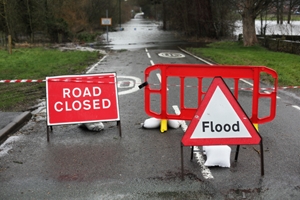While Mother Nature provides people with breathtaking landscapes and picturesque views, she is also capable of creating natural disasters like tornadoes, earthquakes and hurricanes that can be incredibly destructive. Especially lately, extreme weather conditions have left veterans and their families without homes. However, the U.S. Department of Veterans Affairs offers many retired servicemembers the help they need through its initiatives, such as the Home Loan Program.
The prevalence of natural disasters
Floods and tornadoes have recently hit many Southern and Midwestern states. As more storms are predicted to sweep through many locations across the country, it is essential that veterans know how to handle a disaster if it strikes. Director of the Home Loan Program Michael Frueh urged military families to take advantage of their benefits in the event of a natural disaster. Reaching out to a VA loan specialist should be the second step after calling the Federal Emergency Management Agency.
"Depending on the severity of the damage, we'll issue guidance to all servicers in a particular affected area to say, 'please work with our Veteran borrowers in this community. VA is on their side to help,'" Frueh said, according to the VA.
Here are a few additional steps to take:
1. Contact your mortgage company
As homeowners are required to pay their monthly loan payments regardless of the condition of their house, the VA suggested contacting your lender as soon as possible after the event. Unexpected situations like these may make it challenging to submit your payments on time, as factors like repairs and replacing essential belongings can use up a significant portion of your finances. If you are unfamiliar with how to make contractor payments or with insurance loss check procedures, call your lender and ask that he or she explain these processes to ensure that you do not miss a step.
If your home was provided by the VA's Specialty Adapted House program and needs repairs after a disaster, contact your VA loan specialist who may be able to inform you of any special options you have as a member of the program. Just call 877‐827‐3702 to see if you have any grant funds left over to assist you in your time of financial stress.
2. Understand the 3 disaster aid programs
FEMA will usually provide homeowners with assistance through three programs: individual assistance, public assistance and hazard mitigation. Individual assistance can include multiple aspects, such as disaster housing, which may be available for up to 18 months following the incident, and disaster grants and loans. According to FEMA, public assistance programs will generally cover the cost of 75 percent of the approved project costs for the reconstruction of the affected communities. During the repair process, FEMA pays for part of the funds for damage mitigation measures to make sure that the public is safe. This may mean relocation for disaster victims while the community is being rebuilt.
3. Take advantage of all your resources
Even if you do not think that local veteran offices will be able to offer anything to help you recover from a disaster, it never hurts to try. The VA advised calling the nearest organizations, such as the Veterans of Foreign Wars, the American Legion, the Disabled American Veterans and any additional resources in the area. They may be able to offer you special assistance. The VA pointed out that this could even be true for veterans who are not currently members of these organizations.

